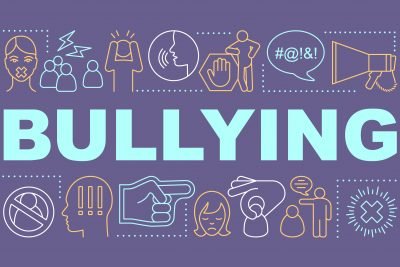Transcript of this video is below:
When students with disabilities are bullied, schools are legally responsible to end the bullying.
By law, schools must act to restore the safety and well-being of students who are harmed by harassment, intimidation, and bullying.
Those words—harassment, intimidation, and bullying, make an acronym: HIB. This video is about HIB protections for students with disabilities.
Please note that bullying increases the risks for suicide and self-harming behaviors.
For a mental health crisis, call 988
For crisis help on topics related to sexual orientation and identity, call The Trevor Project: 866-488-7386
What law says the school has to end the bullying and help my student?
Specific anti-bullying protections for students with disabilities come from Section 504, which is part of a federal law, the Rehabilitation Act of 1973.
The civil right to be protected from bullying applies to all students with disabilities, regardless of whether they have a Section 504 Plan or an Individualized Education Program (IEP). These rights are upheld by the Office for Civil Rights—OCR.
Anyone who knows about an incident of harassment, intimidation, and bullying at school or during a school-sponsored activity can file an OCR complaint at the local, state, or federal level.
What does state law require?
Washington State’s 2019 Legislature passed a law that requires school districts to write formal HIB policies and appoint a person called a HIB Compliance Officer to spread awareness and uphold the laws.
What can parents do?
If your child is bullied at school, ask for the name of your district’s HIB Compliance Officer. Talk to that person about your options and request a HIB complaint form.
If the act included a physical assault or serious property damage, file a police report.
Request an emergency meeting of the IEP or Section 504 team to add supports for the student to ensure emotional and physical safety at school.
What counts as harassment, intimidation, or bullying?
Washington State defines a HIB violation as an intentional act that:
- Physically harms a student or damages the student’s property
- Has the effect of substantially disrupting a student’s education
- Is so severe, persistent, or pervasive that it creates an intimidating or threatening educational environment
- Or has the effect of substantially disrupting the orderly operation of school
A HIB act may be electronic, written, verbal, or physical.
What does a school have to do when a child with a disability is bullied?
The Office for Civil Rights (OCR) requires schools to take immediate and appropriate action to investigate what happened. That means they talk to everyone involved and any witnesses and write a detailed report.
OCR requires the school to stop the bullying now and into the future.
OCR also says that schools must make sure the student who was bullied is helped and not further injured by actions taken in response. The victim should not be suspended, for example.
OCR says: “Any remedy should not burden the student who has been bullied.”
To learn more about federal laws and complaints, contact OCR at 800-421-3481.
Type the word Bullying or Discipline into the search bar at wapave.org to find additional resources.

